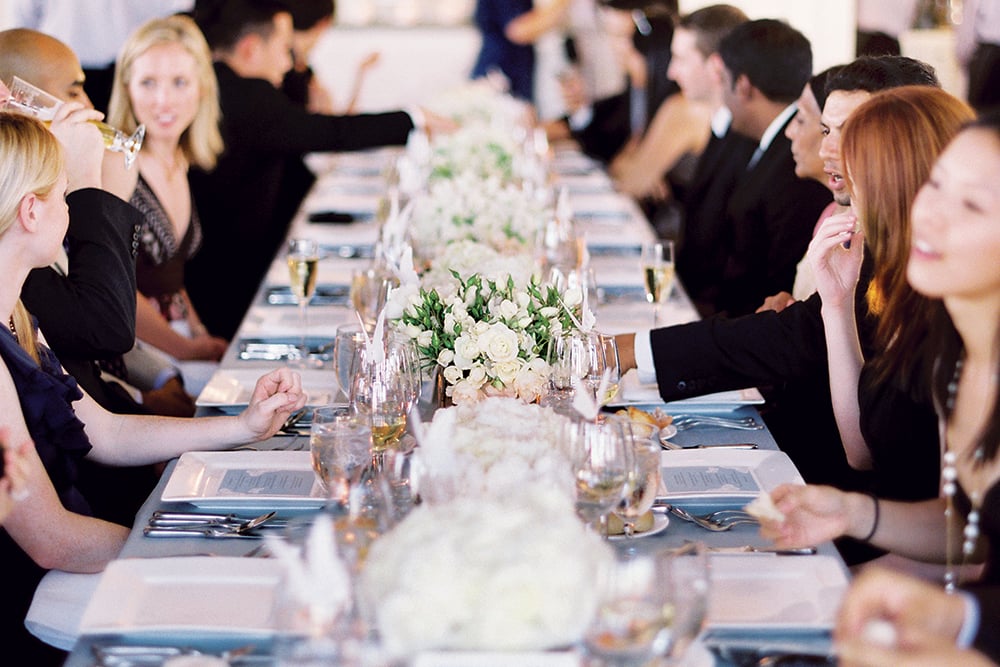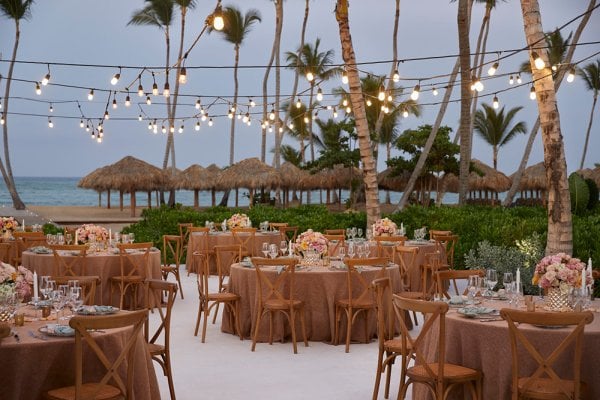"The Wedding M.D." shares some key planning truths that will keep you focused on the big, beautiful wedding picture.
By: David Anthony-AS SEEN IN BRIDAL GUIDE MAGAZINE-

Photo: Jose Villa
"The one thing I hear all the time from couples is, 'This is the first time that I've done this.' Well, rest assured that this is not the first time I've done this," says David Anthony, proprietor of six event venues in upstate New York. With 11 years and 2,200 weddings worth of experience, Anthony has plenty of big-day planning wisdom to share, including some universal wedding truths on What’s Really Important. Here, some highlights.
The Venue
Do make sure it is the right size. Say you’re considering a venue that can seat 300 but you have 120 guests. Initially, that venue may look impressive on the big day, but after an hour, the place will feel empty. Don't cram your guests into a space that's too small, but don't put too few people in a venue that’s too big. That’s very, very important.
Your DJ
You need to make sure that your DJ is at your venue and set up two hours in advance. So if your reception starts at 5 o'clock, the DJ needs to be set up at 3. You don’t want to find out 15 minutes beforehand that a speaker or microphone doesn’t work. You want to have time for the DJ to fix any problems. This is mandatory at all my venues, and it’s definitely something you want to make sure is in the contract.
Your Photographer
First, make sure you are comfortable with your photographer, keeping in mind that they will effectively be directing you and your wedding party from one photo op to another. Have very specific timelines set up along with your shot list so there's a clear understating of how long your pictures are going to take. Huge question: If they have not been there before, are they going to go scout the venue? What pictures do you definitely want? Go and scout the venue together. Make sure this is on the table before you book.
Your Videographer
"Years ago, videographers filmed every wedding detail, resulting in a three-hour film no one watched." What’s popular now are trailers — short films that last anywhere from five to 10 minutes. Rather than documenting the day, these are meant to capture people in the moment. As with your photographer, make sure you're comfortable with the cameraperson as well as with their gear. Take a look at the type of equipment they use. Is it heavy duty (which could feel invasive) or compact and lightweight?
Your Florist
A lot of florists do so much more than just flowers. Some are full stagers. They handle the draperies, the bunting, and other key decor elements. Do make sure if they are handling decor, that they’ll be handling the setting up and the taking down. Find out what the process entails and make sure you understand the costs. Some florists include it and others charge extra.
Your Cake
Often brides say, “I’m not going to have a wedding cake.” Here’s the problem. The cake cutting is symbolic. It’s either the reception kickoff so guests know it’s time to dance or the end point, signaling dessert time. And people love their individual desserts, too. So I would definitely do a combination, even if it’s just a small wedding cake. You want something to cut, something to get the party started.
Your Seating Chart
Yes, you have to do a seating chart, with individual place cards at every setting to avoid the movie-theater effect. Let me explain: Nobody likes to sit right next to someone at the movies, so they leave an empty seat. Say you have a table of eight and the first couple sits down. The second couple sits and inevitably leaves an empty seat, as does the third couple, which makes it awkward for the remaining guests, who are now separated.
Your Tables
You're a guest, you take a seat, introductions start. By the time you are actually eating, it could be 45 minutes later. Put some food on the table. We do cutting boards with offerings such as vegetables, hummus, and tapenade. It doesn’t matter if it's as simple as a loaf of bread — just pick something guests can eat while they wait.


